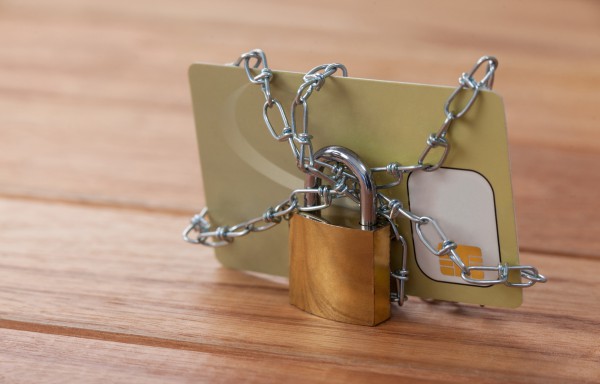In today’s modern world, we have instant access to the
dollars in our bank accounts and approvals for new credit lines, but
unfortunately so do scammers and crooks. The good news is, there are simple
measures we can take to help safeguard our money and our sensitive
information.
ATMs and gas pumps can sometimes be a target for
thieves. They place skimmers or spoofed card readers in place of existing units
in order to get your digits and sell them later. According to Orlando
Sentinel nearly 700 dummy devices were found at Florida
gas stations last year, but there are steps you can take to reduce the odds of
becoming a statistic. If possible, frequent the same stores and ATMs, so you
can familiarize yourself with the layout of their devices. Your gut will let
you know if the lights around the reader look different, if the color has
changed, or if the unit feels loose. Try only using ATMs and fuel pumps that
are close to buildings and in well-lit areas. Using your bank’s ATM is
also a good way to keep your numbers on lock down when you want to make a
withdrawal.
Though increasingly uncommon, there are several
benefits to carrying cash. Watching your back can be as simple as keeping an
eye on your card. If you take cash into restaurants, your server never has to
disappear with your plastic. The same goes for bars, where the bartender often
wants to hold onto your card in order to allow you to start a tab.
Sign up for your institution’s online banking and check it several times a week for suspicious activity. Many banks have email alerts you can sign up for, so if a transaction over a certain amount occurs, you’ll know right away. Credit cards often have safeguards in place that alert you to potentially unauthorized account activity. So, if you typically make thrifty purchases in your hometown of Gary, Indiana, but someone in Miami spends $200 on flavored inhalations at an oxygen bar, it’ll raise a red flag and you’ll get a call.
Don’t give out personal data to people who call or email you, unless you know for sure who they are. If Bobby from Awesome Credit Not Scams calls you at ten o’clock at night with the glad tidings that his goal in life is to help you lower your credit card debt, you might want to ask some questions before rattling off your credit card numbers, birthdate, and social security information. Reputable companies won’t mind that you want verification. If you receive an suspicious email or if someone calls you claiming to be from your bank or credit card company, it’s wise to call a number you know is legitimate before giving out your personal information.
Be careful when tossing your junk mail. I know it’s easy to chuck unwanted credit card applications into the garbage but consider redacting your personal information with a sharpie and tearing up the pages before they go in the rubbish bin. Rogues can steal your identity using the sensitive info contained in your mail, they can also sign up for credit cards in your name if the application gets thrown out intact. Dumpster diving may sound like an unlikely, extreme activity for scammers, but the Social Security Administration references it in their Identity Theft and Your Social Security Number pamphlet. It happens.
If you’re concerned about your card numbers or identity getting stolen, you can sign up for credit monitoring services. They keep an eye on your credit report, and alert you to changes and possible fraud. These services usually charge a fee, and it isn’t a magical wall that will keep you safe. You can still fall prey to any of the scams I’ve mentioned, however, you’ll know about it when it hits your credit report. For $9.99 a month LifeLock will monitor SSN and credit alerts while promising to reimburse its users up to $25,000 of funds thieved on their watch. They have more expensive tiers that offer more services. For the same price, Experian offers the same service, plus credit score tracking and up to $500,000 reimbursement insurance.
You don’t need to worry excessively about credit fraud and identity theft but making small changes can easily build a fort around your sensitive information.



